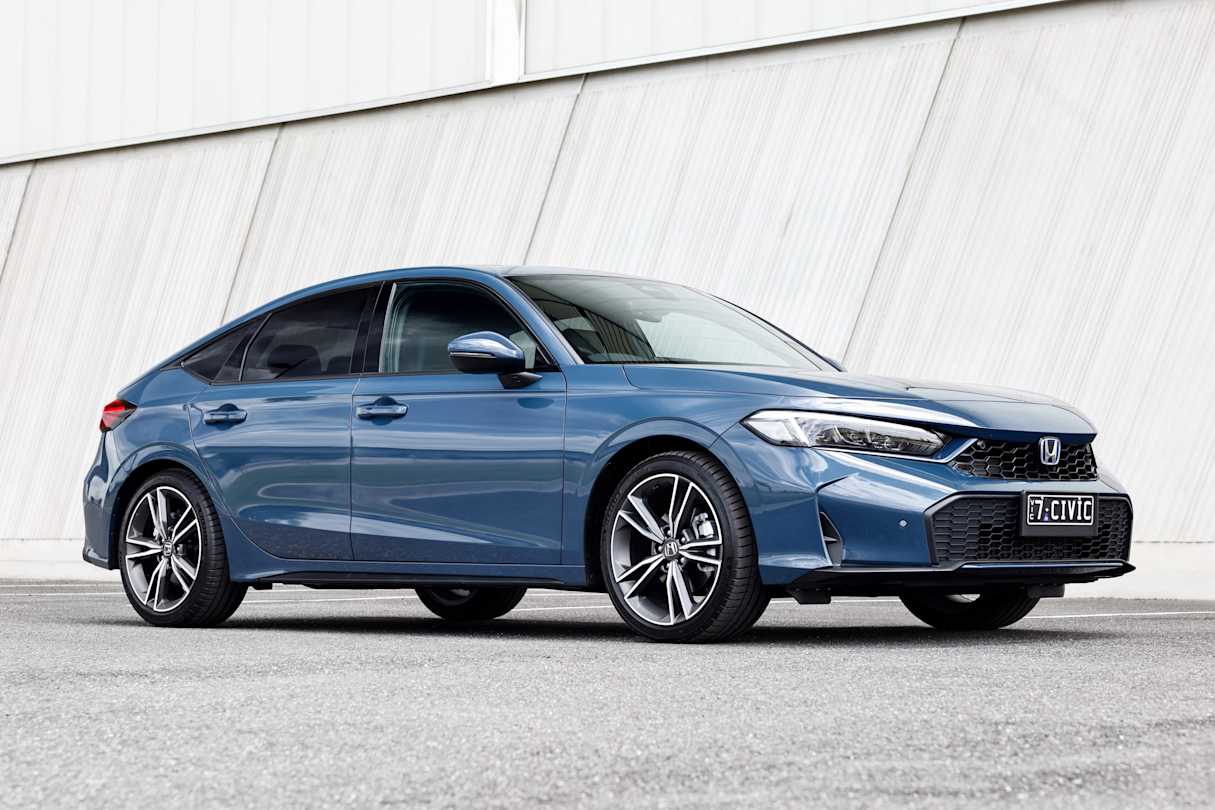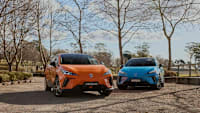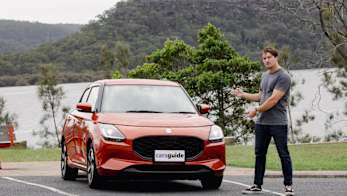What is the safest car in Australia?
The safest car in Australia is one that has a robust safety features list that works in tandem with how the vehicle has been built to minimise injury and/or death to its occupants in the event of a crash.
There’s no ‘one car’ that comes out on top because different types of vehicles will behave differently in emergency situations. The question should be what are the safest cars in Australia?
This article will not answer the question on what the safest car brand or safest car in the world is but it will help you answer ‘is my car safe?’.
What is car safety and why is it important?
Car safety includes how a vehicle is built, its handling dynamics and what passive and active safety systems it has in place.
Passive items include things like airbags and seatbelts but active systems are things like Autonomous Emergency Braking (AEB) which will activate and perform emergency braking if a forward object is detected, like a car or pedestrian etc.
Active (crash-avoidance) safety is all about avoiding a crash in the first place. So, for example, if a car steers accurately, remains stable in a heavy swerve manoeuvre and brakes well, you have a substantial head start.
Aside from that, tech that helps you avoid a sheet metal interface or pedestrian impact falls under the heading of active safety.
Why is safety in cars important? Unladen, the average vehicle sits well over one-tonne and that’s for a small hatchback. In the wrong situation or in the wrong hands, that vehicle can wreak immense damage and cause severe injury including loss of life.
The NSW Government highlights that a vehicle’s age and safety equipment are some of the key contributors to road fatalities. Simply put, choosing safer vehicles improves your survivability in a crash.
How is car safety determined in Australia?
Our car safety is determined by the Australian Design Rules (ADRs) which are in turn determined by the Australian Government under the Road Vehicles Standards Act 2018. The national strategy can be found in the National Road Safety Action Plan 2023 - 25.
ADRs "are the national regulatory standards for safety, anti-theft and environmental performance of road vehicles" for the Australian market. Currently Australia mandates 75 ADRs, most of which are aligned with United Nations regulations.
Safety is more than just the inclusion of safety systems and what features a vehicle has; it’s also how those system work.
Two cars could have the exact same safety features list but perform quite differently in emergency situations, or even just daily driving. It’s easy to see this on lane keeping aids; if they’re too sensitive, you get a jerky driving experience and if they’re not well-tuned, you’ll leave your lane without a warning from the car.
Which is why we have an independent testing body like the Australasian New Car Assessment Program, or as its more commonly referred to as ANCAP.
ANCAP has been testing vehicle safety since 1992 for Australia and New Zealand.
ANCAP works as a complementary body to the National Road Safety Strategy to ensure ADRs are followed and to recommend ADRs for future vehicles.
How do you find out about what safety equipment your car has?
You are probably now wondering ‘how safe is my car’?
It's worth noting every vehicle review on the CarsGuide website includes an evaluation of active and passive safety performance.
And a vehicle manufacturer's website will typically include the specifications sheet for your vehicle. This will outline which safety features are fitted to your model. Another great place to look is the ANCAP website and search for your vehicle.
Having the coveted maximum five-star rating is excellent but it’s important to recognise that further research is always recommended as an ANCAP safety rating Australia alone should not be considered the ‘be all and end all’ when it comes to a car’s safety assessment.
Some vehicles, such as sports- or niche-market cars have not been assessed but it does provide the average consumer a reasonable and fair view on a vehicle’s overall safety.
It's also important to read the ANCAP report to see how its safety systems have performed in crash scenarios and watch the crash test videos, as they will show you more context on those results.
What should you look for in a safe car?
A safe car will have a good number of passive and active vehicle safety features. Look for car safety ratings on websites like ANCAP for a comprehensive list of available features on your make/ model.
Passive items include seatbelts, daytime-running lights and airbags. Every seat of the vehicle should be fitted with a three-point safety belt and head restraint. Lap belts are not adequate. Ideally there should also be a seatbelt warning system, so you know if a passenger isn’t clipped in.
The number of airbags will depend on the vehicle. There’s only so many air bags you can get in a single-cab ute for example but a good rule of thumb for a five-seat passenger vehicle is a minimum of seven. Two front-, two front side chest-, two curtain- and a front centre airbag.
If you have a vehicle with three rows, look for vehicles where the curtain airbags extend to the third row and if the second row also get side-chest airbags.
In terms of active safety, the base standard equipment should include AEB, forward collision warning, blind-spot monitoring, electronic stability control (ESC), anti-lock braking systems (ABS), traction control systems (TCS), lane support systems (LSS), and at a bare minimum, a reversing camera with rear parking sensors.
However, it’s always been my opinion that SUVs should be equipped with a 360-degree view camera system, as well as, front and rear parking sensors.
Safest car colours Australia
It may seem silly but the colour choice of your vehicle does play a small part in its overall safety as certain colours are easier to see no matter the light conditions.
Unsurprisingly, the colour white has been deemed the safest colour choice. According to a study done by the Monash University, the colours red, silver, blue, green, black and grey demonstrated a higher crash risk relative to the colour white. Black being the worst offender.
Which is why daytime-running lights are so important as they increase the visibility of your car, so that other drivers can see you on the road!
Below is a list of some of the safest vehicles in Australia at the moment. Vehicles with five-star ANCAP safety ratings from testing conducted under the 2023 protocols were given higher standing, as were those with high individual assessment scores.
This is not an exhaustive list but merely a snapshot on current available vehicles for the Australian market.
If you wish to find out about used car safety ratings, check out this NSW Government information booklet. For streamlining purposes, only two vehicles have been selected for each segment.
Safest hatchback Australia

Model: Honda Civic e:HEV
The Why: Honda has quietly outfitted the new e:HEV variant with a whole stack of safety equipment, including eleven, yep ELEVEN, airbags. It includes side chest airbags for the second row (usually only found in the first row), knee airbags for both the driver and front passenger, as well as the newer front centre airbag. Not bad at all.
ANCAP: Five-stars from testing done in 2022
Individual Assessment Scores: 89 per cent for adult protection, 89 per cent for child protection, 82 per cent for vulnerable road user protection and 83 per cent for safety assist systems

Model: Toyota Yaris
The Why: A small hatchback that rivals its slightly larger cousin, the Corolla. For a little car it manages to score seven airbags including the newer front centre airbag and has a decent list of standard safety features. Scored highly in its individual assessment scores.
ANCAP: Five-stars from testing done in 2020.
Individual Assessment Scores: 86 per cent for adult protection, 87 per cent for child protection, 78 per cent for vulnerable road user protection, and 87 per cent for safety assist systems

Model: BYD Dolphin
The Why: Despite an odd-sounding name, the Dolphin is serious on safety and has nine airbags! Including side chest airbags for the second row and a front centre airbag.
ANCAP: Five-stars from testing done in 2023.
Individual Assessment Scores: 89 per cent for adult protection, 86 per cent for child protection, 85 per cent for vulnerable road user protection and 77 per cent for safety assist systems

Model: Volkswagen Polo
The Why: Much like the Toyota Yaris, this offers buyers a small and easy-to-drive car that’s big on safety features. It too, has seven airbags including the newer front centre airbag.
ANCAP: Five-stars from testing done in 2022.
Individual Assessment Scores: 94 per cent for adult protection, 80 per cent for child protection, 70 per cent for vulnerable road user protection, and 70 per cent for safety assist systems
Safest mid-size car

Model: Toyota Camry
The Why: A long-term favourite that has always upheld the ‘if it aint broke, don’t fix it’ mentality. Solid list of standard safety kit and has eight airbags, including a front centre airbag and drivers’ knee airbag.
ANCAP: Five-stars from testing done in 2024.
Individual Assessment Scores: 90 per cent for adult protection, 85 per cent for child protection, 84 per cent for vulnerable road user protection and 86 per cent for safety assist systems
.jpg)
Model: BYD Seal
The Why: Another sea-based entry but one that is as serious as its smaller cousin on safety with its nine airbags, which includes side chest airbags for the second row and a front centre airbag.
ANCAP: Five-stars from testing done in 2023
Individual Assessment Scores: 89 per cent for adult protection, 87 per cent for child protection, 82 per cent for vulnerable road user protection and 75 per cent for safety assist systems
Safest large car

Model: BMW 5 Series
The Why: A German entry that combines comfort, style and safety in one large package. Lots of standard safety kit and has seven airbags, including a front centre airbag.
ANCAP: Five-stars from testing done in 2023
Individual Assessment Scores: 89 per cent for adult protection, 87 per cent for child protection, 86 per cent for vulnerable road user protection and 81 per cent for safety assist systems

Model: Mercedes-Benz EQE
The Why: Mercedes has always been the epitome of elegance in Australia and it gets a healthy dose of safety equipment as well, including a whopping 10 airbags. Including side chest airbags for the second row, a front centre airbag and drivers’ knee airbag.
ANCAP: Five-stars from testing done in 2022
Individual Assessment Scores: 95 per cent for adult protection, 92 per cent for child protection, 83 per cent for vulnerable road user protection and 82 per cent for safety assist systems
Safest small SUV

Model: Smart #3
The Why: A relatively unknown small car that’s big on its safety. It has seven airbags, including a front centre air bag and features front cross-traffic alert.
ANCAP: Five-stars from testing done in 2023
Individual Assessment Scores: 90 per cent for adult protection, 85 per cent for child protection, 84 per cent for vulnerable road user protection and 86 per cent for safety assist systems

Model: Zeekr X
The Why: Newcomer Zeekr is proving that you can take the Volvo out of the name but not the build. Features seven airbags, including a front centre airbag.
ANCAP: Five-stars from testing done in 2024
Individual Assessment Scores: 91 per cent for adult protection, 87 per cent for child protection, 84 per cent for vulnerable road user protection and 84 per cent for safety assist systems
Safest mid-size SUV

Model: MG HS
The Why: The MG Pilot suite is on offer for even the base models and that means lots of big-ticket items are included as standard safety kit. It features seven airbags, including a front centre airbag.
ANCAP: Five-stars from testing done in 2024
Individual Assessment Scores: 90 per cent for adult protection, 87 per cent for child protection, 83 per cent for vulnerable road user protection and 74 per cent for safety assist systems

Model: Kia EV5
The Why: Kia have outfitted the EV5 with a long list of safety equipment as standard, including seven airbags and an intelligent emergency e-call function. The big systems are all included, even on base grades, and they’re fairly user friendly – although the traffic sign recognition beeps and bops a lot.
ANCAP: Five-stars from testing done in 2024
Individual Assessment Scores: 88 per cent for adult protection, 86 per cent for child protection, 74 per cent for vulnerable road user protection and 82 per cent for safety assist systems
Safest large SUV

Model: Toyota LandCruiser Prado
The Why: Arguably the most popular family 4WD in Australia (and for good reason!) but again has tried and tested safety systems which are user-friendly. Also features nine airbags, including two front knee airbags and a front centre airbag. The curtain airbags extend to the third row.
ANCAP: Five-stars from testing done in 2024
Individual Assessment Scores: 85 per cent for adult protection, 89 per cent for child protection, 84 per cent for vulnerable road user protection and 82 per cent for safety assist systems

Model: Mazda CX-80
The Why: A large seven-seater that caters for every family member and has excellent safety items included as standard. Features 10 airbags, including side chest airbags for the second row, drivers; knee airbags and a front centre airbag. The curtain airbags extend to the third row.
ANCAP: Five-stars from testing done in 2024
Individual Assessment Scores: 92 per cent for adult protection, 87 per cent for child protection, 84 per cent for vulnerable road user protection and 83 per cent for safety assist systems
Safest ute

Model: JAC T9
The Why: You may wonder what this even is but the newly launched JAC T9 ute is fairly serious with its safety specs and comes with seven airbags, including a front centre airbag. It also has all of the big systems and I like that it has an intelligent seatbelt detector for all seats.
ANCAP: Five-stars from testing done in 2024
Individual Assessment Scores: 85 per cent for adult protection, 87 per cent for child protection, 87 per cent for vulnerable road user protection and 89 per cent for safety assist systems

Model: GWM Cannon Alpha
The Why: On road handling is a little rough but the safety systems are not. It’s well-equipped and has seven airbags including a front centre airbag.
ANCAP: Five-stars from testing done in 2024
Individual Assessment Scores: 84 per cent for adult protection, 93 per cent for child protection, 82 per cent for vulnerable road user protection and 81 per cent for safety assist systems
Safest family car Australia aka people movers
.jpg)
Model: LDV Mifa
The Why: A people mover with lots of creature comforts and safety equipment as standard. Features seven airbags, including a front centre airbag.
ANCAP: Five-stars from testing done in 2022
Individual Assessment Scores: 93 per cent for adult protection, 88 per cent for child protection, 73 per cent for vulnerable road user protection and 90 per cent for safety assist systems

Model: Volkswagen Multivan
The Why: Definitely more van-like than people-mover but has solid a safety kit and seven airbags including a front centre airbag.
ANCAP: Five-stars from testing done in 2022
Individual Assessment Scores: 90 per cent for adult protection, 89 per cent for child protection, 69 per cent for vulnerable road user protection and 79 per cent for safety assist systems




.jpg)

.jpg)

.jpg)







.jpg)



.jpg)
.jpg)


